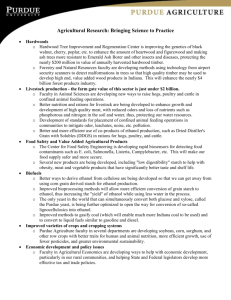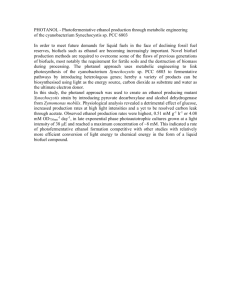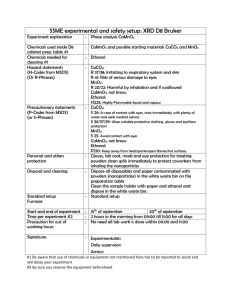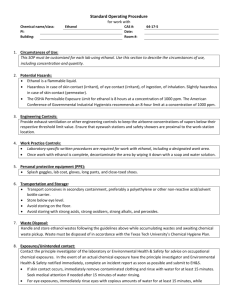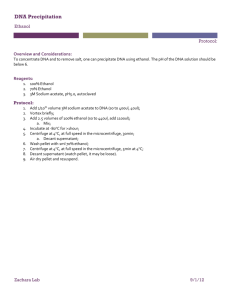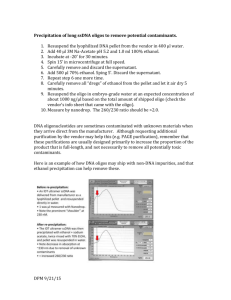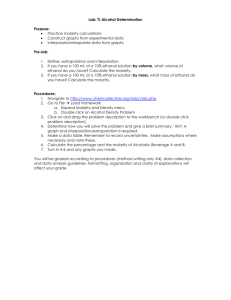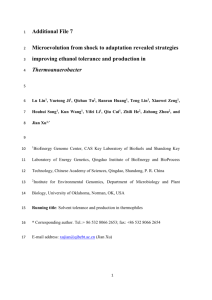The ethanol stress response of Lactobacillus plantarum WCFS1
advertisement
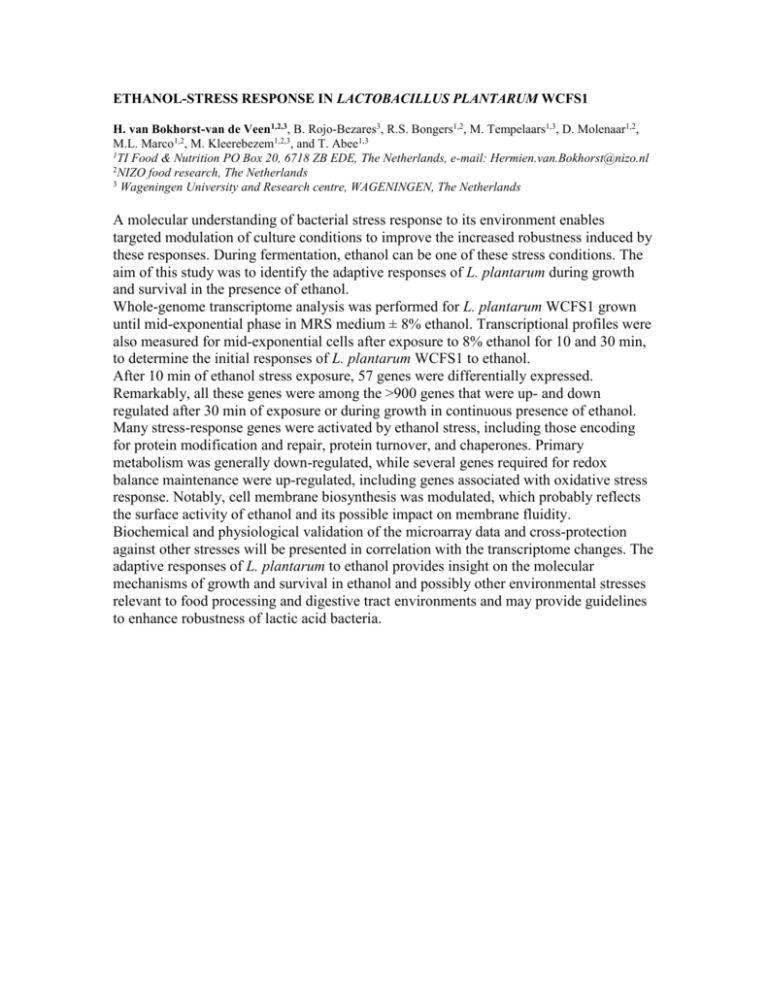
ETHANOL-STRESS RESPONSE IN LACTOBACILLUS PLANTARUM WCFS1 H. van Bokhorst-van de Veen1,2,3, B. Rojo-Bezares3, R.S. Bongers1,2, M. Tempelaars1,3, D. Molenaar1,2, M.L. Marco1,2, M. Kleerebezem1,2,3, and T. Abee1,3 1 TI Food & Nutrition PO Box 20, 6718 ZB EDE, The Netherlands, e-mail: Hermien.van.Bokhorst@nizo.nl 2 NIZO food research, The Netherlands 3 Wageningen University and Research centre, WAGENINGEN, The Netherlands A molecular understanding of bacterial stress response to its environment enables targeted modulation of culture conditions to improve the increased robustness induced by these responses. During fermentation, ethanol can be one of these stress conditions. The aim of this study was to identify the adaptive responses of L. plantarum during growth and survival in the presence of ethanol. Whole-genome transcriptome analysis was performed for L. plantarum WCFS1 grown until mid-exponential phase in MRS medium ± 8% ethanol. Transcriptional profiles were also measured for mid-exponential cells after exposure to 8% ethanol for 10 and 30 min, to determine the initial responses of L. plantarum WCFS1 to ethanol. After 10 min of ethanol stress exposure, 57 genes were differentially expressed. Remarkably, all these genes were among the >900 genes that were up- and down regulated after 30 min of exposure or during growth in continuous presence of ethanol. Many stress-response genes were activated by ethanol stress, including those encoding for protein modification and repair, protein turnover, and chaperones. Primary metabolism was generally down-regulated, while several genes required for redox balance maintenance were up-regulated, including genes associated with oxidative stress response. Notably, cell membrane biosynthesis was modulated, which probably reflects the surface activity of ethanol and its possible impact on membrane fluidity. Biochemical and physiological validation of the microarray data and cross-protection against other stresses will be presented in correlation with the transcriptome changes. The adaptive responses of L. plantarum to ethanol provides insight on the molecular mechanisms of growth and survival in ethanol and possibly other environmental stresses relevant to food processing and digestive tract environments and may provide guidelines to enhance robustness of lactic acid bacteria.


